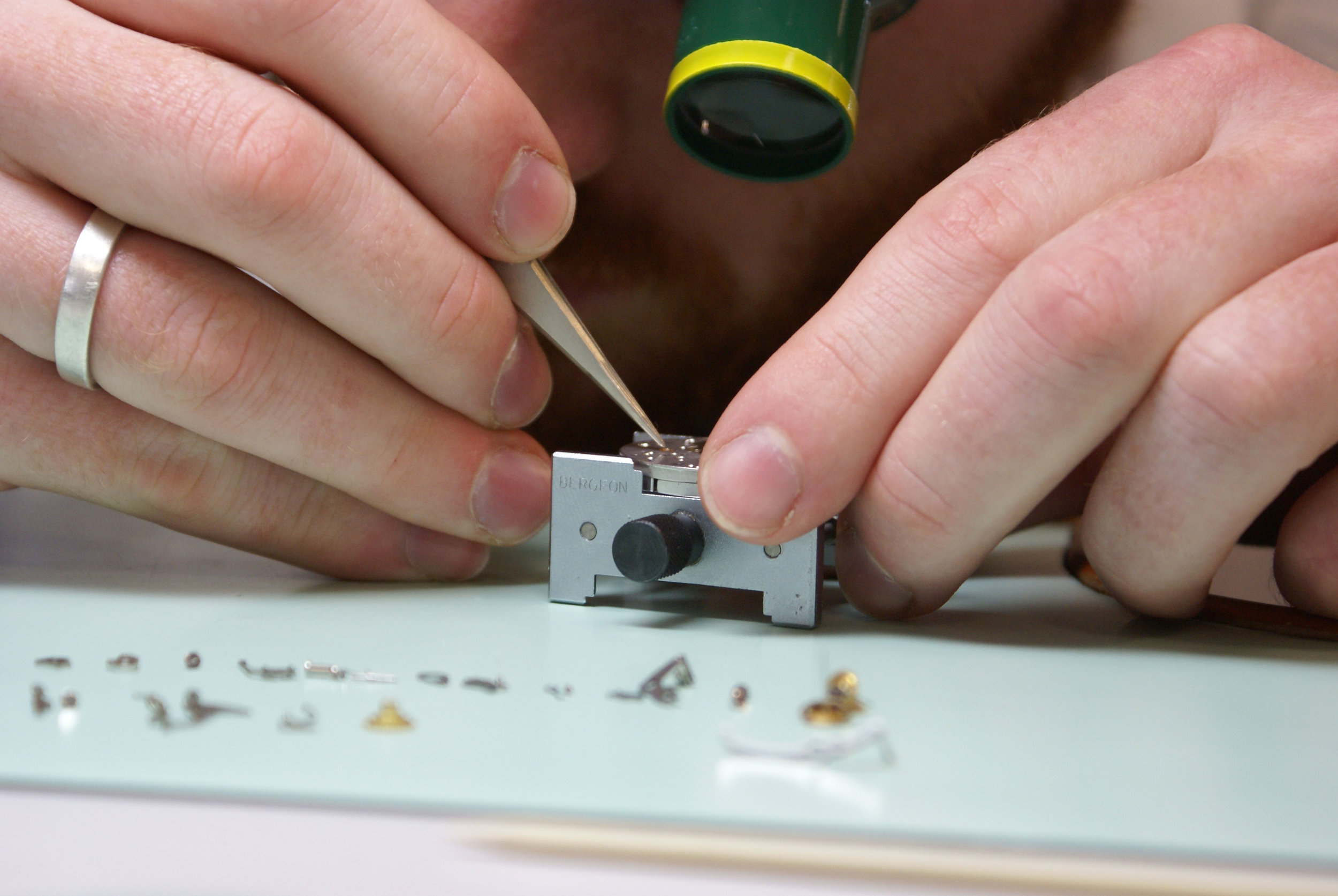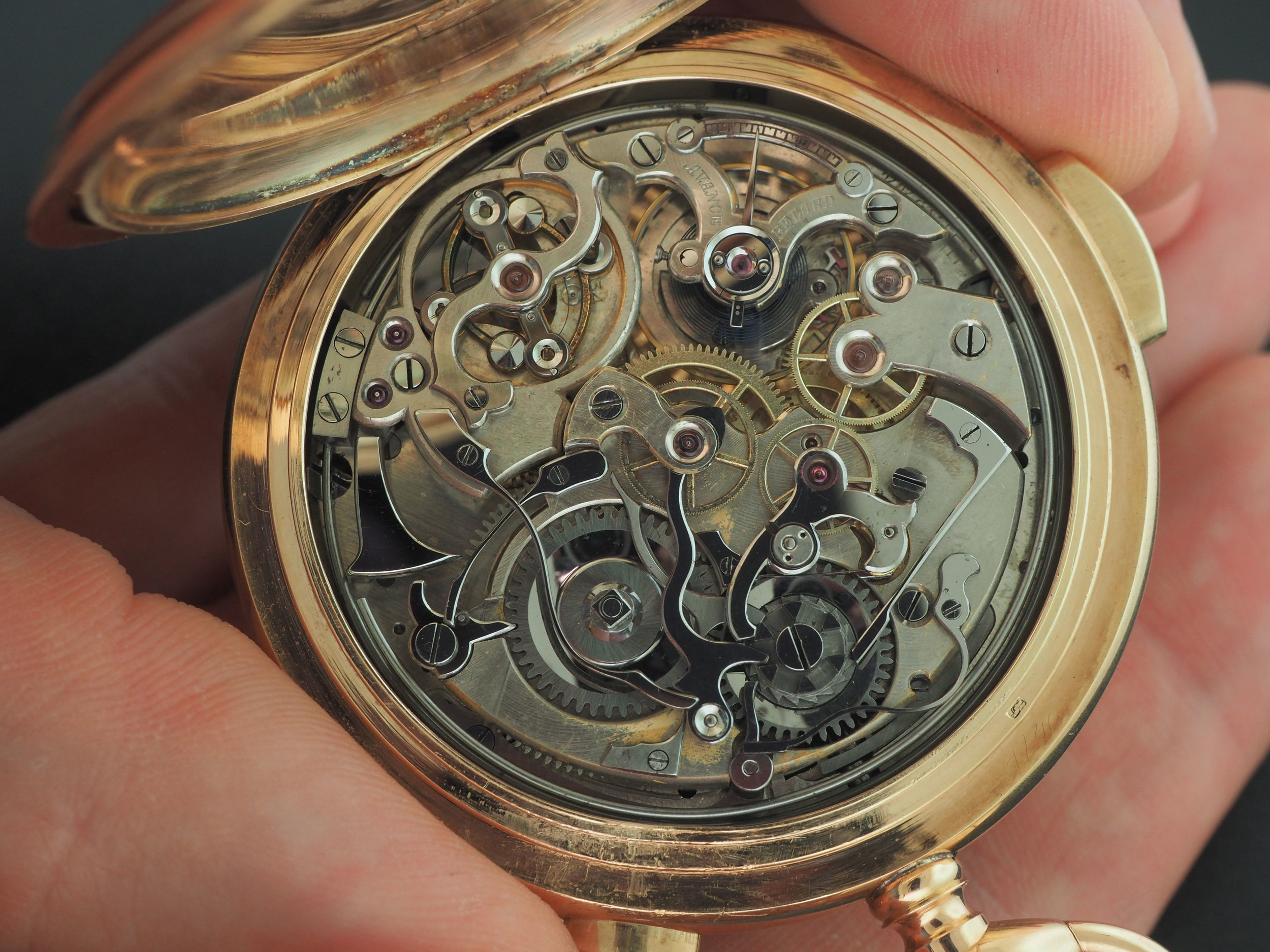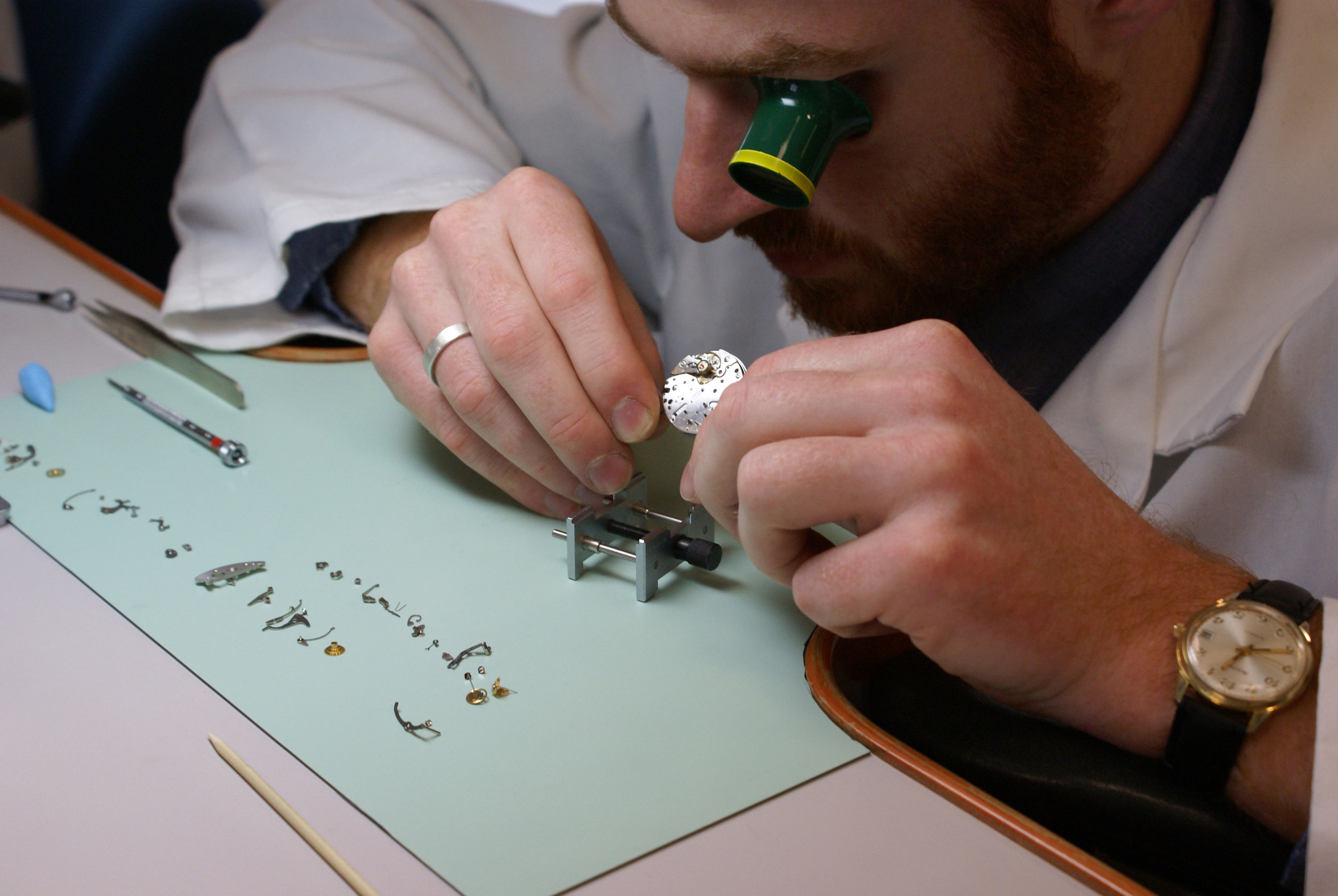Watch Movement Service
Watch movement service involves diagnosing watch movements of all types by identifying worn or broken parts and maladjustments. Watchmakers must decide whether to replace or repair these parts in order to restore the movement back to manufacturers' specifications and tolerances. Due to the fact that there is a very large range of movement designs, it is impossible to cover all products that a professional watchmaker might work on during his/her career. Therefore we place strong emphasis on the abstract side of things. We want our learners to comprehend the general technical principles of watch movements, enabling them to transfer the knowledge reliably to movements that they have not seen before.
Learners are first introduced to the service processes on a pocket watch movement.
The larger sized movement is followed in short order by electronic wrist watches. At this very early stage the learner gets exposed to the complete service process by dealing with a complete watch – not just working on a watch movement - thus developing the broad spectrum of skills and knowledge that will be essential for a successful career as a full-fledged watchmaker.
Once the electronic movement phase is successfully completed, learners progress to work on mechanical watches and their complications. A complication is a mechanism that is added to a basic watch movement. For example, a calendar or an automatic winding system are considered simple complications. A more demanding complication that has been gaining a significant market share in sales over the past decades is the chronograph.
At the final stage of learning, students will work on vintage and/or unusual timepieces. It is important to be familiar with this segment as well, although it is for many watchmaking professionals a marginal portion of the overall work volume. What makes these service repairs unique is not just the age of the pieces; it is the the significant sentimental and/or commercial value that the pieces may hold for the owner. Therefore, it is extremely important that watchmakers not only have the expertise to properly service them, but also understand the intangible emotional value the pieces may hold.




